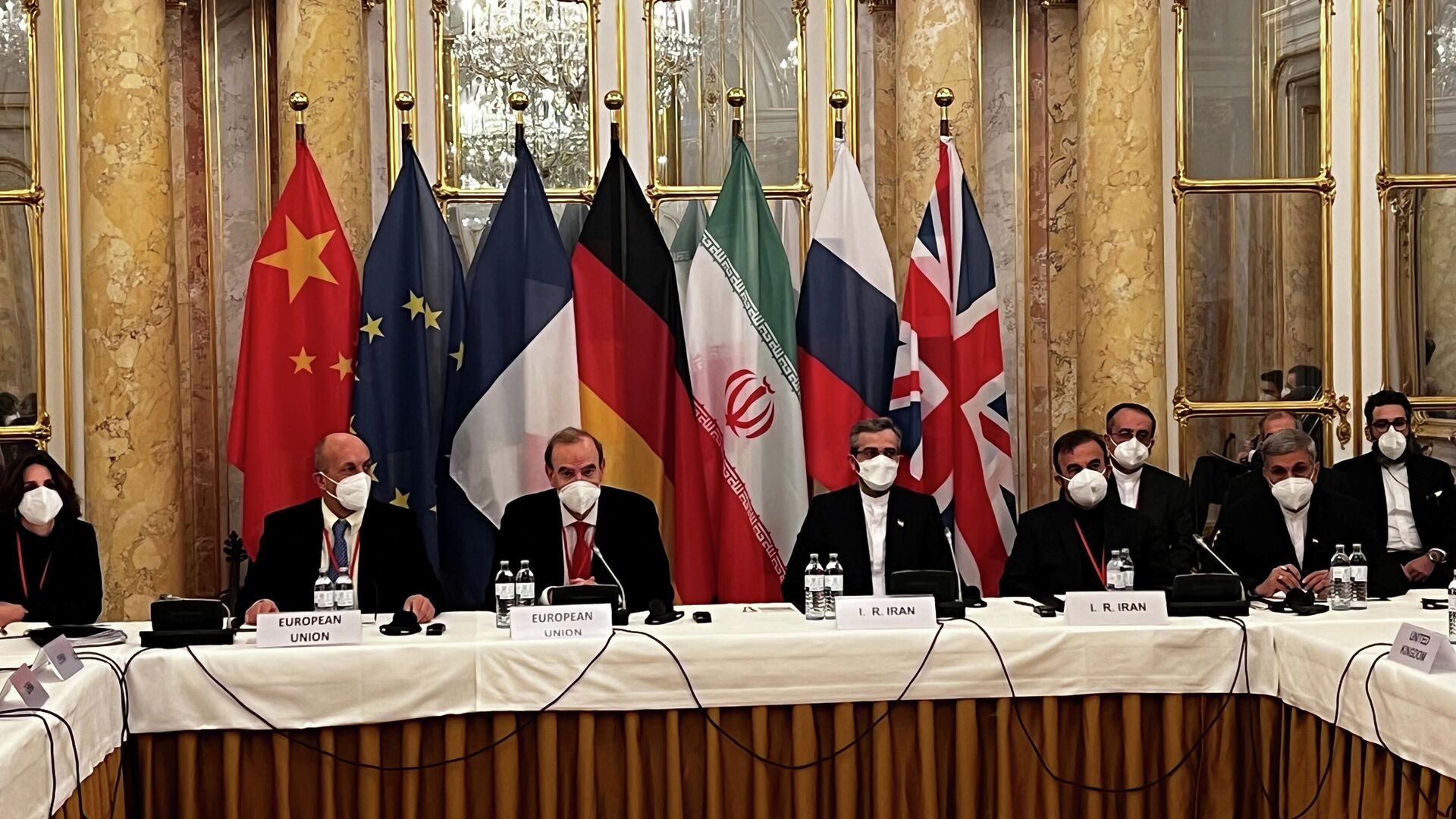https://sputnikglobe.com/20211213/last-chance-uk-foreign-secretary-warns-time-is-running-out-for-iran-amid-nuclear-deal-talks-1091472613.html
'Last Chance': UK Foreign Secretary Warns Time is Running Out for Iran Amid Nuclear Deal Talks
'Last Chance': UK Foreign Secretary Warns Time is Running Out for Iran Amid Nuclear Deal Talks
Sputnik International
The United Kingdom, United States, and Germany have expressed fear that the 2015 Joint Comprehensive Plan of Action (JCPOA) will fail to garner a serious... 13.12.2021, Sputnik International
2021-12-13T00:36+0000
2021-12-13T00:36+0000
2023-05-28T15:24+0000
us
joint comprehensive plan of action (jcpoa)
iran deal
united kingdom (uk)
https://cdn1.img.sputnikglobe.com/img/07e5/0c/05/1091266264_0:0:3641:2048_1920x0_80_0_0_68763caf3680cb9fdc410bbd4dcaf6a4.jpg
UK Foreign Secretary Liz Truss warned on Sunday that Iran may only have one final opportunity to rejoin the historic 2015 nuclear deal amid the latest spike in tensions between regional powers.Negotiations over a new JCPOA nuclear deal have been taking place in Vienna since late last month after a five-month pause while Iran held elections and saw the rise of Iranian President Ebrahim Raisi.On Saturday, Annalena Baerbock, Germany’s Minister of Foreign Affairs, voiced a similar sentiment."Time is running out," she noted.US Secretary of State Antony Blinken is also concerned that negotiations will end without a result. In the wake of a US delegation negotiating with Iran through European allies, Blinken said, “I have to tell you, recent moves, recent rhetoric, don't give us a lot of cause for optimism.”The pessimism comes only a week after US Special Envoy for Iran Robert Malley told Al Jazeera that officials were "fully committed to a mutual return to compliance with the JCPOA.” Earlier this month, Blinken revealed that the latest round of talks in Vienna were halted after negotiators determined that Iran was not "serious about doing what's necessary to return to compliance." Iran later responded to the remarks by blaming the setback on the US' refusal to lift restrictive sanctions.The JCPOA was initially negotiated over the course of 20 months - from 2013 through 2015, with the 15-year deal granting expanded oversight to outside entities over Iran’s nuclear program. The agreement allowed Iran to slowly develop a nuclear infrastructure.In 2018, the Trump administration unilaterally withdrew the United States from the agreement after accusing Iran of breaching restrictions of the agreement. In the wake of the sudden withdrawal, Iran subsequently discarded its nuclear program constraints as the US began a "maximum pressure" campaign that saw a slew of sanctions imposed.
united kingdom (uk)
Sputnik International
feedback@sputniknews.com
+74956456601
MIA „Rossiya Segodnya“
2021
News
en_EN
Sputnik International
feedback@sputniknews.com
+74956456601
MIA „Rossiya Segodnya“
Sputnik International
feedback@sputniknews.com
+74956456601
MIA „Rossiya Segodnya“
us, joint comprehensive plan of action (jcpoa), iran deal, united kingdom (uk)
us, joint comprehensive plan of action (jcpoa), iran deal, united kingdom (uk)
'Last Chance': UK Foreign Secretary Warns Time is Running Out for Iran Amid Nuclear Deal Talks
00:36 GMT 13.12.2021 (Updated: 15:24 GMT 28.05.2023) The United Kingdom, United States, and Germany have expressed fear that the 2015 Joint Comprehensive Plan of Action (JCPOA) will fail to garner a serious resolution from Iran. The three western allies believe time is running out to come to an agreement, even as the rhetoric on both sides gets turned up.
UK Foreign Secretary Liz Truss warned on Sunday that Iran may only have one final opportunity to rejoin the historic 2015 nuclear deal amid the latest spike in tensions between regional powers.
Negotiations over a new JCPOA nuclear deal have been taking place in Vienna since late last month after a five-month pause while Iran held elections and saw the rise of Iranian President Ebrahim Raisi.
Truss told Reuters, "This is the last chance for Iran to come to the negotiating table with a serious resolution to this issue, which has to be agreeing to the terms of the JCPOA." She added, "This is their last chance and it is vital that they do so. We will not allow Iran to acquire a nuclear weapon."
On Saturday, Annalena Baerbock, Germany’s Minister of Foreign Affairs, voiced a similar sentiment.
She told reporters, "It has shown in the last days that we do not have any progress... due to the offer of the Iranian government, negotiations have been thrown back six months."
"Time is running out," she noted.
US Secretary of State Antony Blinken is also concerned that negotiations will end without a result. In the wake of a US delegation negotiating with Iran through European allies, Blinken said, “I have to tell you, recent moves, recent rhetoric, don't give us a lot of cause for optimism.”
The pessimism comes only a week after US Special Envoy for Iran Robert
Malley told Al Jazeera that officials were "fully committed to a mutual return to compliance with the JCPOA.”
“We think there’s still time to do it if Iran comes back and says they’re prepared to roll up their sleeves and do it, too,” he underscored at the time.
Earlier this month, Blinken
revealed that the latest round of talks in Vienna were halted after negotiators determined that Iran was not "serious about doing what's necessary to return to compliance." Iran later
responded to the remarks by blaming the setback on the US' refusal to lift restrictive sanctions.
The JCPOA was initially negotiated over the course of 20 months - from 2013 through 2015, with the 15-year deal granting expanded oversight to outside entities over Iran’s nuclear program. The agreement allowed Iran to slowly develop a nuclear infrastructure.
In 2018, the Trump administration unilaterally withdrew the United States from the agreement after accusing Iran of breaching restrictions of the agreement. In the wake of the sudden withdrawal, Iran subsequently discarded its nuclear program constraints as the US began a "maximum pressure" campaign that saw a slew of sanctions imposed.

